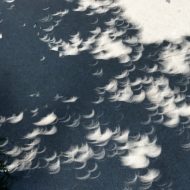2022
Bechtold, L., Donovan, C., & Johnson, H. L. (2022). College algebra students’ attitudes toward math and graphs: An exploratory factor analysis. In Lischka, A. E., Dyer, E. B., Jones, R. S., Lovett, J. N., Strayer, J., & Drown, S. (Eds.), Proceedings of the 44th Annual Meeting of the North American Chapter of the International Group for the Psychology of Mathematics Education (pp. 1630-1634).Middle Tennessee State University. https://doi.org/10.51272/pmena.44.2022
Bikner-Ahsbahs, A., Johnson, H. L., Shvarts, A., & Seidouvy, A. (2022). Introduction to the thematic working group 17 on theoretical perspectives and approaches in mathematics education research of CERME 12: Horizontal and vertical theorizing. Twelfth Congress of the European Society for Research in Mathematics Education (CERME12). Free University of Bozen-Bolzano and ERME. https://hal.archives-ouvertes.fr/hal-03808704
Johnson, H. L., McClintock, E., & Leech, N. (2022). A multifocal lens on qualitative data analysis: An affordance of networking theoretical approaches. Twelfth Congress of the European Society for Research in Mathematics Education (CERME12). Free University of Bozen-Bolzano and ERME. https://hal.archives-ouvertes.fr/hal-03749217
2021
Johnson, H. L., Olson, G., Smith, A., Gardner, A., Wang, X., & Donovan, C. (2021). Validating an assessment of students’ covariational reasoning. In Olanoff, D., Smith, K., and Spitzer, S (Eds.), Proceedings of the 43rd Annual Meeting of the North American Chapter of the International Group for the Psychology of Mathematics Education (pp. 63-67). Philadelphia, PA. DOWNLOAD
2O19
Johnson, H. L., Gardner, A., Smith, A., Olson, G., & Wang, X. (2019). Interacting with dynamic computer activities impacts college algebra students’ math attitudes and performance. In Otten, S., Candela, A., de Araujo, Z., Haines, C., & Munter, C. (Eds.). Proceedings of the 41st Annual Meeting of the North American Chapter of the International Group for the Psychology of Mathematics Education (pp. 1424-1433). St Louis, MO: University of Missouri. DOWNLOAD.
2018
Johnson, H. L., Kalir, R., Olson, G., Gardner, A., Smith, A., & Wang, X. (2018). Networking theories to design a fully online assessment of students’ covariational reasoning. In Hodges, T.E., Roy, G. J., & Tyminski, A. M. (Eds.). Proceedings of the 40th annual meeting of the North American Chapter of the International Group for the Psychology of Mathematics Education (pp. 1343-1346). Greenville, SC: University of South Carolina & Clemson University. DOWNLOAD
Johnson, H. L., McClintock, E., Kalir, R., & Olson, G. (2018) Networking theories to design dynamic covariation techtivities for college algebra students. In (Eds.) A. Weinberg, C. Rasmussen, J. Rabin, M. Wawro, and S. Brown, Proceedings of the 21st Annual Conference on Research in Undergraduate Mathematics Education (pp. 1224-1233), San Diego, CA: RUME. DOWNLOAD
2017
Johnson, H. L., McClintock, E., Hornbein, P., Gardner, A., & Grieser, D. (2017). When a critical aspect is a conception: Using multiple theories to design dynamic computer environments and tasks to foster students’ discernment of covariation. 10th Congress of European Research in Mathematics Education, Dublin, Ireland. DOWNLOAD
Tzur, R., Johnson, H. L., Norton, A., Davis, A., Wang, X., Ferrara, M., Jorgensen, C. & Wei, B. (2017). Conception of number as a composite unit predicts students’ multiplicative reasoning: Quantitative corroboration of Steffe’s model. In B. Kaur, W. K. Ho, T. L. Toh, & B. H. Choy (Eds.), Proceedings of the 41st Conference of the International Group for the Psychology of Mathematics Education (Vol. 4, pp. 289-296). Singapore: PME. DOWNLOAD
2016
Johnson, H. L. (2016, July). Designing technology-rich tasks to foster secondary students’ covariational reasoning. 13th International Congress on Mathematical Education, Hamburg, Germany. DOWNLOAD
2015
Johnson, H. L. (2015, July). Task design: Fostering secondary students’ shifts from variational to covariational reasoning. In Beswick, K., Muir, T., & Wells, J. (Eds.) Proceedings of the 39th Conference of the International Group for the Psychology of Mathematics Education (Vol. 3, pp. 129-136). Hobart, Tasmania: University of Tasmania. DOWNLOAD
